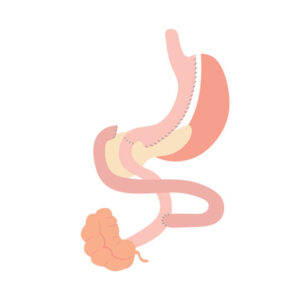
Diabetes Surgery Istanbul
Diabetes, which occurs as a result of causes such as weight gain, genetic predisposition, and carbohydrate-heavy nutrition, is frequently encountered in Turkey. The progression of diabetes can cause vision loss, kidney problems, and many other serious problems because this disease affects the entire central nervous system and even internal organs. Although there are alternative methods for the treatment of diabetes, which is divided into Type 1 and Type 2, the only clear solution is surgery. However, the surgical option can only be preferred by patients experiencing Type 2 diabetes disorder. All information about Prof. Dr. Samet Yardımcı, who performs diabetes surgery that ends diabetes in Istanbul, is included in this article. This article can enlighten you on topics such as what is diabetes surgery, how is it performed, who are suitable candidates for this surgery, what are the risks. In the continuation of our article, you can find detailed information about diabetes surgery with Prof. Dr. Samet Yardımcı’s method.
What is Diabetes Surgery?
Diabetes, which affects many organs and can damage vital functions in progressive periods, is seen more and more every day. In order to prevent this disease, physicians and the ministry of health are trying to develop new methods. The most effective among these methods is diabetes surgery. Thanks to diabetes surgery, it is aimed to ensure that the patient can use insulin in their body correctly and that the pancreas can maintain its function in a healthy way.
For Whom is Diabetes Surgery Suitable?
The main cause of diabetes, which is divided into TYPE 1 and TYPE 2, is insulin. In TYPE 2, insulin is insufficient, while in TYPE 1, insulin cannot be secreted at all. Since TYPE 2 diabetes patients can secrete insulin, conditions are suitable for surgery, but since TYPE 1 patients cannot secrete insulin anyway, surgery will not solve the problem either. Therefore, the decision for diabetes surgery should be made by looking at the type of diabetes.
Surgery is not mandatory for TYPE 2 patients either. In people who start to experience problems in their daily life, medication use is started first, but insulin stores in the pancreas may be depleted over time. Surgical treatment should be considered in cases where the disease continues to progress despite all diabetes medications because if the disease continues to progress, problems arise in many parts of the body from the eyes and kidneys to nerve endings.
Since TYPE 2 patients are also divided into groups among themselves, there are also TYPE 2 diabetes patients who cannot be operated on.
- Patients with a history of heart attack and those who have undergone coronary bypass are not operated on even if they have no insulin production.
- In patients with a body mass index below 30, other treatments are tried first.
- As a result of patient-specific evaluation, insulin use is restored.
- In kidney failure, whether the patient enters dialysis or not, it is seen as a serious case and is not deemed suitable for operation.
- If there has been serious wear on the patient’s organs such as kidney failure during the disease, the operation may pose a risk.
How is the Decision Made for Diabetes Surgery?
When surgery is considered in patients with TYPE 2 diabetes, first, insulin stores are examined with the examinations and tests performed, and whether the operation is appropriate is evaluated. It is very important that insulin stores are preserved. If the patient’s sugar is very high, surgery is not possible, but in patients between the ages of 18-65, the decision for surgery can be made by specialist physicians.
Is Diabetes Surgery a Risky Surgery?
In TYPE 2 diabetes patients, physicians must clearly reveal the patient’s history after taking it clearly and as a result of necessary analyses and examinations because the duration of TYPE 2 diabetes, the progression of the disease, and the damage it has caused to organs are very serious issues that must be determined. Since TYPE 2 diabetes can lead to metabolic problems, the decision for surgery should be made as a result of a detailed evaluation considering the risks.
How is Diabetes Surgery Performed?
After the necessary examinations and tests are performed and evaluated by the specialist physician, the final decision is made considering the course of your other diseases. Since the operation will be performed under general anesthesia, it would be beneficial to take a break from habits such as smoking and alcohol that reduce the effect of anesthesia for a while. In addition, since such habits will delay tissue healing, it will be beneficial not to start them for a while after surgery. The nutrition regimen should continue as recommended by your doctor before surgery.
Diabetes surgery, which is based on adding the section located at the end of the small intestine to the exit part of the stomach, is performed with laparoscopic methods just like obesity surgeries. This method, which provides definitive recovery between 90-95% in TYPE 2 diabetes patients, is frequently preferred in metabolic surgery and this method is expected to cause hormonal changes.
Istanbul Diabetes Surgery
You can consult Prof. Dr. Samet Yardımcı, who serves in the field of Istanbul obesity and metabolic surgery, to learn about the condition of your existing diabetes and to improve your quality of life with alternative treatment methods. With the treatment of TYPE 1 and TYPE 2 diabetes diseases, you can both get rid of your excess weight and control your diabetes disease. You can decide on diabetes surgery for your TYPE 2 diabetes and succeed in staying away from diabetes in your brand new life. All you need to do for this is to reach Prof. Dr. Samet Yardımcı.












